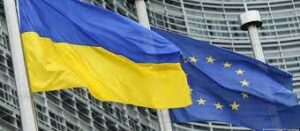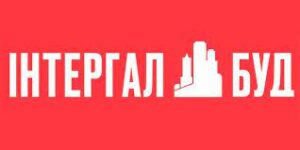
Ambassadors of the European Union member states have approved the allocation of 5 billion euros of military aid for Ukraine under the European Peace Facility.
The decision was taken on Wednesday in Brussels on the sidelines of a meeting of the Committee of Permanent Representatives, the Belgian Presidency said on its social media page X.
“A deal! EU ambassadors agreed in principle to reform the European Peace Facility to support Ukraine with a €5 billion budget for 2024. The European Union remains determined to provide long-term support to Ukraine and to ensure that the country receives the military equipment it needs to defend itself,” the presidency said.

The European Union should think about reducing access to the European market of sugar from third countries at least by 10%, then there would be a place for Ukrainian sugar in the EU, which would not allow this market to collapse, said the director of the National Association of Sugar Beet Producers of Poland Rafal Strahota in the program “Between Brussels and Kiev” on farmer.pl.
“The European Union has opened up the market in recent years. It has signed a number of trade agreements with various third countries. I know it is difficult, but if we reduced access to the EU market by at least a dozen percent, there would be enough room for Ukrainian sugar, and at the same time it would not destroy the EU market,” he said.
The director of the industry association noted that no one in the European Union had raised this topic.
Strakhota recalled that the European Commission is developing a regulation on protective measures, which provides for the introduction of a limit on sugar imports from Ukraine, taking into account export data, which are based on 2022-2023. Taking these data, Strachota calculates that Ukraine will be allowed to supply Poland with 320,000 tons of sugar per year.
“This is too much,” he stated.
According to the National Association of Sugar Beet Producers of Poland, in 2023-2024, the structure of Poland’s sugar imports looked like this: 32% accounted for Ukraine, 23% – Brazil, 9% – Eswatini, 7% each – Mauritius and Colombia, 18% – other countries.
At the same time, Poland grew 2.34 million tons of sugar beet in 2023 by expanding the production area under it, which amounted to 265 thousand hectares. The average beet yield was about 64 tons/ha, with very large yield differences between individual regions. In Poland, more than 26,000 people grew beet last year.
“At the same time, from October to December 2023, average sugar prices in Poland fell by 12%, and when packaged in 1 kg packages, the price drop exceeded 20%,” said the director of the industry association.
Strahota expressed concern that before the Autonomous Trade Measures (ATM) come into effect in June 2024, the Polish market could face a problem due to Ukrainian sugar.
“We fear that by that time a lot of sugar may come from Ukraine. Let me remind you, the action has ended (the sugar season – IF-U) and sugar has been produced. It is in warehouses, and in fact in these warehouses there are still about 600 thousand of sugar, which can easily get to the EU,” – Strahota emphasized.
He recalled that in 2023 in Ukraine was sown about 250 thousand hectares of sugar beet, produced about 1.8 million tons of sugar. Domestic consumption is less than 1 million tons, so the export potential is 800 thousand tons.
“In the first three months of the current marketing year, about 200 thousand tons of sugar from Ukraine entered the EU,” the expert said.
The publication cited data according to which Ukraine supplied to Poland in 2021 17.777 thousand tons of sugar, in 2022 – 15.278 thousand tons, and in 2023 it reached 468.97 thousand tons.
“At stake is the fate of the extension of the EU trade liberalization with Ukraine for another year, that is, until June 2025 with the restriction of sugar imports from this country, but in this case, the average figures of 2022 and 2023, when imports of this raw material from Ukraine were huge, are taken as benchmarks,” regretted the director of the National Association of Sugar Beet Producers of Poland and added that the country asks the European Commission, the European Parliament and the European Union to use the volume of supplies for 2021-2022 to calculate the allowable sugar imports.

“Intergal-Bud” has received certificates of commissioning of the first house of Residential Complex CITY HUB and the tenth house in Residential Complex “Nivki Park”, the press service of the company reported.
According to the data of the Unified State Electronic System in the sphere of construction, in the commissioned first house of Residential Complex CITY HUB – 255 apartments, in the tenth house of Residential Complex “Nivki City” – 283 apartments.
Intergal-Bud” reminds that the certificate of construction completion is the basis for participation of the object in the state programs “єOsela” and “єVidnovlenia”.
CITY HUB is a business class project located in Solomenskyi district of the capital, on Mokra Street (Kudryashova Street), 8-10. The residential complex will have two houses, which are united by a stylobate, under which there is a large parking lot for 300 cars.
LCD “Nivki Park” at 67 Beresteisky Ave. is a comfort class project, 12 residential buildings with height of 12, 16-17 floors, 2931 apartments in total. The complex includes an underground parking lot for 580 parking spaces.
The construction company “Intergal-Bud” has been working in the market of residential real estate since 2003. The company has built 170 houses, 20 residential projects are at the stage of realization. The total area of the projects is 4.6 mln sq. m.
INTERGAL-BUD, REAL ESTATE, Residential Complex CITY HUB, Residential Complex Nivki Park
Structure of foreign exchange reserves as of 30.10.2023

Source: Open4Business.com.ua and experts.news

The National Bank of Ukraine (NBU) has included two companies Risk End Life Consulting LLC and Universal Insurance Brokers and Consultants LLC into the State Register of Insurance and Reinsurance Brokers.
According to the NBU website, the decision was made on March 8
Risk End Life Consulting LLC was registered in Kiev in July 2009. The authorized capital is UAH 63 mln.
LLC Insurance Broker “Universal Insurance Brokers and Consultants” was registered in Kiev in March 2010. Authorized capital is UAH 20 th.
According to the NBU data as of March 1, 2024 there were 37 insurance and reinsurance brokers registered in Ukraine.

Insurance company Busin (Kyiv) has collected UAH 293.238 mln of gross premiums in 2023, that is by 10.63% less than a year earlier, the rating agency Standard-Rating reported in the information on updating the credit rating/rating of financial stability of the insurer at the level of “uaAA+” on the national scale on the basis of the analysis of its statements for the specified period.
According to the report, receipts from individuals for this period have grown by 7,19% – to UAH 1,446 mln, and from reinsurers, on the contrary, have decreased by 7,39% – to UAH 43,182 mln.
Insurance payments sent to reinsurers for 2023 decreased by 10.62% compared to 2022 – to UAH 193.951 million. Despite such decrease, the ratio of reinsurers’ participation in insurance premiums remained almost unchanged – at the level of 66.14%.
Net premiums for the year decreased by 10.65% – to UAH 99.287 mln, while earned premiums increased by 30.89% – to UAH 114.479 mln.
For 2023, the company paid UAH 1,317 mln of insurance payments and indemnities to its clients, which is 91,70% more than for 2022. Thus, the level of payments has increased by 0,24 p.p. – to 0,45%.
The financial result from operating activity of IC “Busin” for 2023 has grown to UAH 65,143 mln, and net profit has amounted to UAH 55,218 mln.
Assets of the insurer on January 1, 2024 have decreased by 4,04% – to UAH 586,909 mln, shareholders’ equity has increased by 20,88% – to UAH 243,016 mln, liabilities have decreased by 16,25% – to UAH 343,893 mln, cash and cash equivalents have increased by 25,97% – to UAH 265,873 mln.
According to the information provided by RA IC “Busin”, as of January 1, 2024 has complied with the criteria of liquidity, profitability and quality of insurer assets, solvency and capital adequacy norms, riskiness norms of operations and asset quality norms.
IC Busin was registered in February, 1993. It specializes on risky types of insurance. It is a member of a number of professional and branch associations – League of Insurance Organizations of Ukraine, National Club of Insurance Payouts, International Association of Aviation Insurers (UA), Nuclear Insurance Pool, American Chamber in Ukraine, British Business Club.